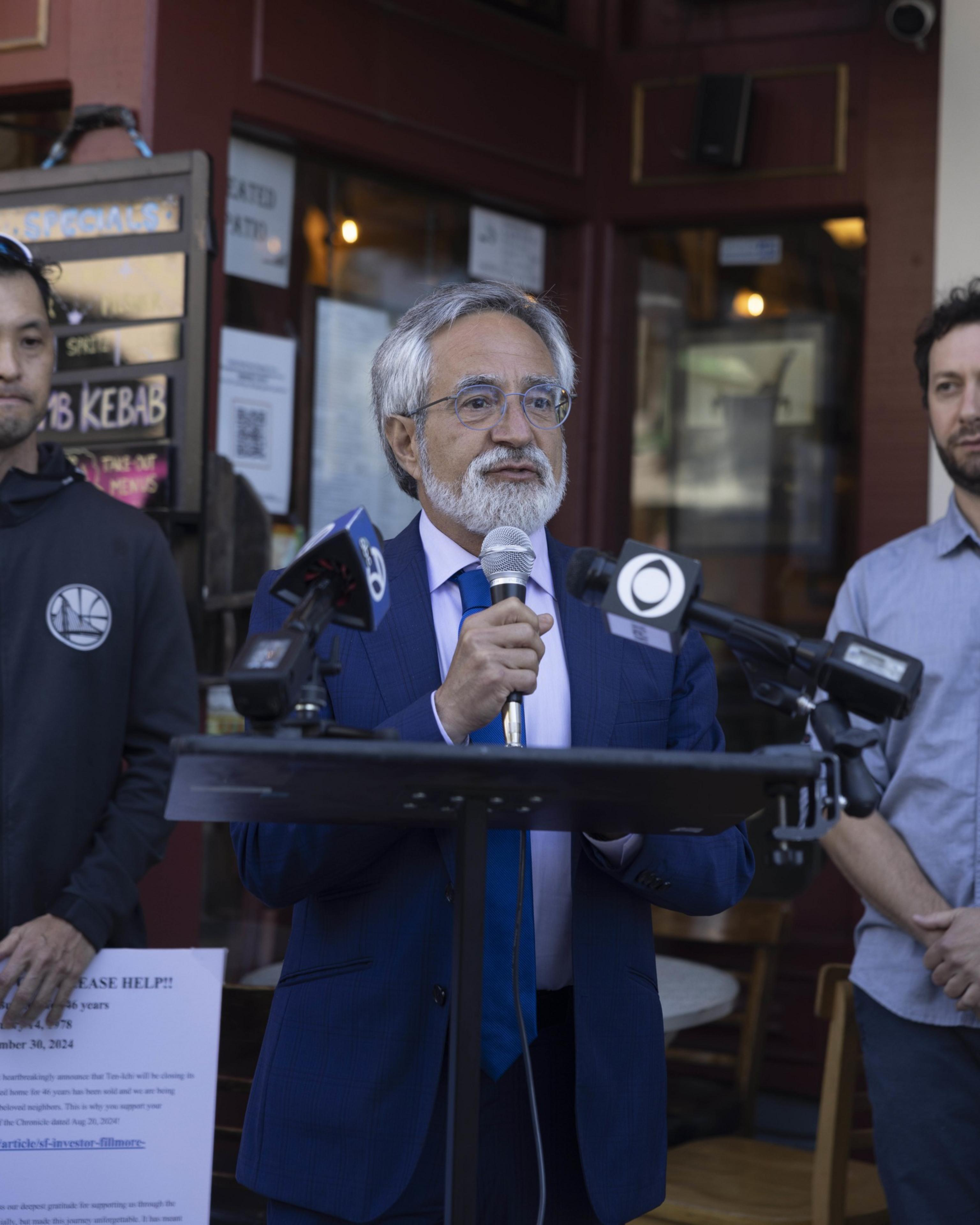For years, moderate groups have channeled tens of millions of dollars into San Francisco’s political activities, offering what they view as a more sensible approach to governing.
Now, progressives are throwing their two cents into the November race—figuratively and literally.
A swell of progressive-leaning organizations, supported mainly by labor groups, are raising money and strategizing to act as a bulwark against well-funded moderate entities like TogetherSF and Neighbors for a Better San Francisco. They say moderates dominate the conversation, and want to get their message heard on issues such as rent control, zoning, affordable housing, public safety, and responsible governance.
“It’s about organizing a truth squad,” said political consultant Eric Jaye, who is propping up a progressive group called the San Francisco Working Families Voter Guide. “When a handful of billionaires say San Francisco is on the wrong track, we think there needs to be some civic education.”
Indeed, the group aims to ensure that City Hall is not merely the realm of the rich and powerful. Jaye says the organization will initially receive money from labor groups Unite Here and the National Union of Healthcare Workers; about $500,000 has been committed so far. Michael Lighty, a healthcare union advocate, is also behind the effort.

“It is not our intent to get into a tit-for-tat with the world’s richest people,” said Jaye. “What we would propose to do is be a trusted source of information for labor families and other working families to learn about the races in San Francisco.”
Jaye is also involved in Neighbors and Communities United, a new nonprofit whose website lays out arguments for affordable housing, more shelters to combat the “underlying” issues behind homelessness, and “proven” public safety policies such as community policing and restorative justice. The organization also pushes against upzoning proposals as part of the city’s effort to comply with the state’s housing element.
“Our iconic neighborhoods are threatened by a ruinous proposal to allow up to nine-story buildings on shopping streets like 24th Street in Noe Valley, Castro Street, Polk Street, Clement Street, Haight Street, Taraval Street, Irving Street, and in dozens of other neighborhood shopping districts,” the group says in its marketing materials.
Neighbors and Communities United is a 501(c)(4) organization, which means it can conceal its donors. Jaye declined to share who besides Unite Here and the National Union of Healthcare Workers is supporting the group.
“Progressives have to understand that you have to keep fighting and winning to keep San Francisco as a progressive city.”
Columbia University Professor Lincoln A. Mitchell
Other progressives have jumped into the fray. They include Fix Our City SF, another labor-backed group that secured almost $1 million from SEIU Local 1021 and IFPTE Local 21. It recently set up Connie for our Neighborhoods, a website supporting District 1 Supervisor Connie Chan, who is facing a competitive race against moderate Marjan Philhour. Fix Our City has also set up an opposition website on Philhour, while her supporters, which include Grow SF, launched a site called Clear Out Connie.
There’s also Real Reform, a group formed by Board of Supervisors President and mayoral candidate Aaron Peskin to support his charter amendment measure and oppose the one from moderate political entity TogetherSF. Additionally, Real Reform will try to boost Peskin’s anti-corruption measures. It has raised about $20,000 from small-business owners such as Christin Evans of Booksmith and Alembic, as well as members of the powerful Swig family.

The rise of such groups comes as observers have questioned whether progressives can still win upcoming elections, as frustrated voters have embraced tougher positions on public safety, drugs, and other issues.
If the March elections are any measure, moderate Democrats — or, what their progressive rivals would label as “conservatives” within the context of city politics — are ascendant in local government, having won a majority on the local Democratic Party governing board.
Lincoln A. Mitchell, who teaches at the School of International and Public Affairs at Columbia University, said for progressives to be successful in the November election, they need to drive home a cohesive message about affordability and inclusivity.
That, he argues, will be a powerful counter to what he sees as powerful tech interests pushing for a city that caters to the upper classes.
“It’s hard to go up against so much money with groups who play so hard and quick with the truth,” said Mitchell, author of a forthcoming book about 1970s Mayor George Moscone. “Progressives have to understand that you have to keep fighting and winning to keep San Francisco as a progressive city.”

